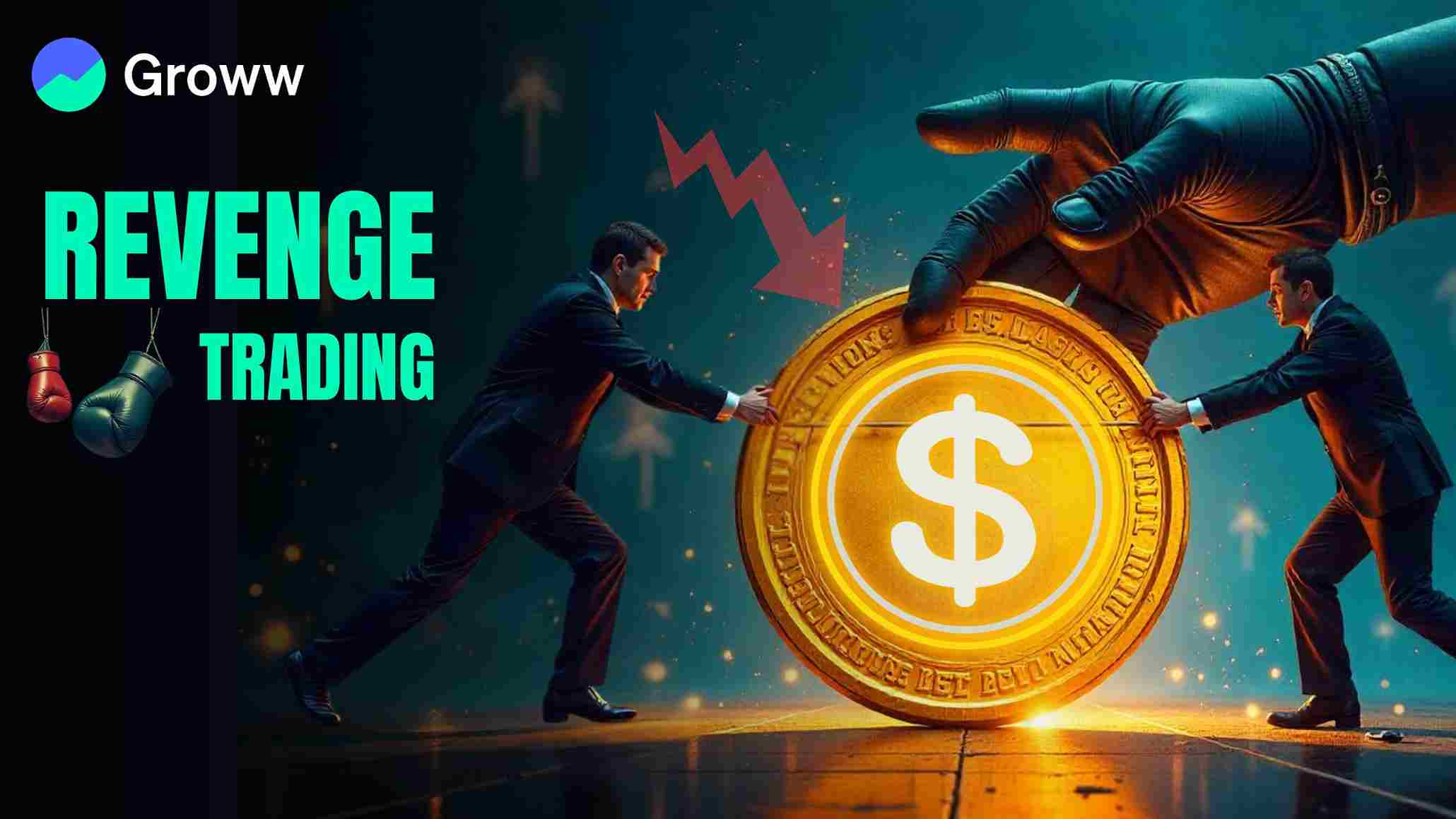What Is Revenge Trading?

Revenge trading is a high-risk and impulsive trading behavior that usually happens due to an attempt to recover the losses from earlier trades, thereby resulting in further losses or capital depletion. It completely deviates from risk management strategies, and investors often engage in the same owing to emotional reactions such as frustration, anger, and a desire to prove themselves after experiencing losses.
In other words, a revenge trade occurs when you throw caution to the wind and act in an irrational manner after losing money on any transaction. This may lead to you placing larger orders and ignoring a pre-defined trading plan or strategy altogether. The key motive here is taking revenge on the market for earlier losses. It goes without saying that it could mostly end up creating a vicious cycle of more losses and depletion of capital while hindering rational decision-making in the process.
Why Traders Fall Into the Revenge Trading Trap
Here is a closer look at the major reasons why people fall into this trap in the first place.
- All traders are humans at the end of the day. Hence, while making decisions, they are often guided by emotions and instincts like guilt, fear, greed, and frustration. This can be triggered after experiencing a loss, thereby making us act irrationally.
- Most people also believe that they can sense constants like reward and risk with certainty, although it is never the same in a continually fluctuating market.
- Uninformed trades without a prior strategy or risk management happen as a result of our basic instinct to go all in and exact revenge on the market for our previous losses.
Psychological Impact & Emotional Triggers
Some of the key triggers may include:
Losses
The immediate trigger behind revenge trading is a loss in any earlier trade, which may generate emotional or impulsive reactions.
Anger or Frustration
Losing money may lead to feelings of anger and frustration that can manifest through poor trading decisions.
Wishing to Get Even
An urge to swiftly recover the losses and get even with the market may lead to traders taking on huge risks.
Shame & Fear
Many traders simply cannot accept a loss, particularly if it’s a big one and would rather do a revenge trade right away to set it right. It may also be driven by the shame and fear of facing others who might learn about the loss. Saving face is often a strong psychological driver behind such behavior.
How to Prevent Revenge Trading
Here are some approaches you can consider to avoid revenge trading -
Create a trading plan
It is important to have a predefined trading plan which will help you bypass any impulsive decisions.
Setting stop-loss orders
You should always consider setting stop-loss orders in order to reduce potential losses and safeguard your capital.
Taking periodic breaks
Know when to take a break. This will help you calm your mind, emotions, and come back with a more rational mindset.
Maintaining a trading schedule
Create and maintain a trading schedule, which will ultimately become a habit and influence how you place trades in the market.
Do not deviate from your trading strategy
Do not deviate from your trading plan. You can try new things sometimes, but make sure they are only for small trades with negligible potential losses/risks.
Cut out the clutter
Avoid multiple avenues that may divert your attention with a whole bunch of opportunities and strategies. Choose a reputed platform for market updates and trading tips and cut out the distractions.
Recognise unavoidable losses
Investments are subject to market risks. Recognise that losses are unavoidable at times and this shouldn’t mean going all out to take revenge as a result.
How to Recover from revenge trading
In case you’ve made a revenge trade, step back temporarily and give your mind some time to recover before analysing the situation objectively. Rationally evaluate what made you get into this trade and what led to the loss in the first place. You can then firm up a trading plan and checklist that you can follow from the next time onwards. Of course, this should include a regular assessment of the market conditions, volatility, trends, opportunities, etc.
Creating a solid entry and exit strategy to limit potential losses is the next step, along with making adjustments to trading processes/strategies after identifying your weaknesses and strengths. Acknowledge that you didn’t expect the loss, note the self-assessment feedback, and what you learned from the transaction before putting it out of your mind. Mentally visualise what should have happened and affirm to yourself that you will do better when you trade next.
Concluding Notes
Revenge trading thrives on human emotions. It can lead to irrational and impulsive trading decisions, throwing trading strategies, risk management practices, and other rational decision-making out of the window. You have to realise that the markets are unpredictable and such behavior can only lead to further losses and capital depletion in turn. Hence, it is important to understand what this means, the psychological triggers behind the same, and to take proactive steps to prevent it from happening.
Disclaimer: This content is solely for educational purposes. The securities/investments quoted here are not recommendatory.
To read the RA disclaimer, please click here